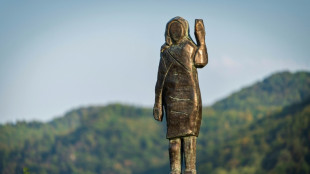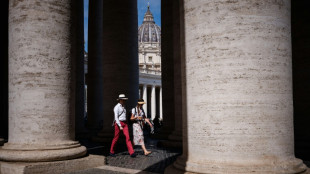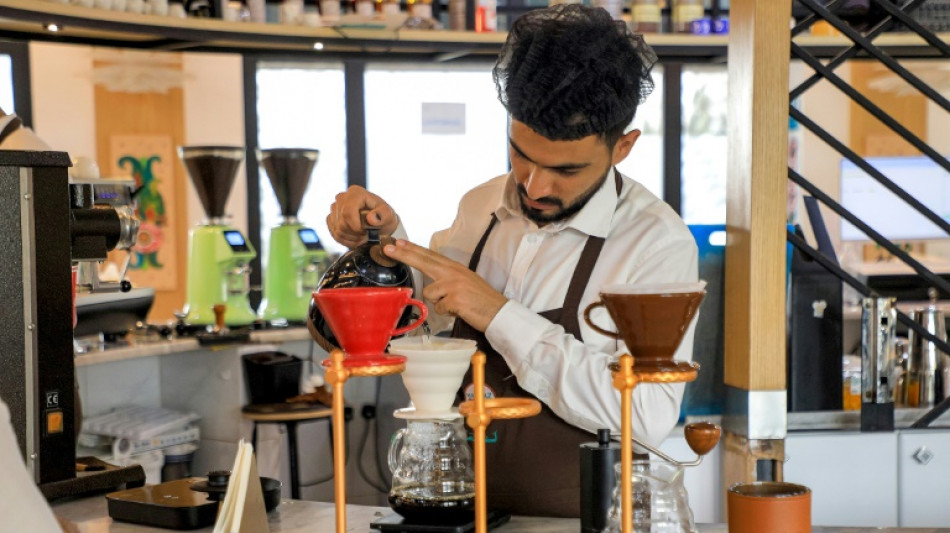
-
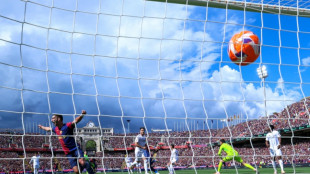 How Flick's Barca wrestled La Liga back from Real Madrid
How Flick's Barca wrestled La Liga back from Real Madrid
-
Kiwi Fox, local hero Smalley make most of late PGA calls

-
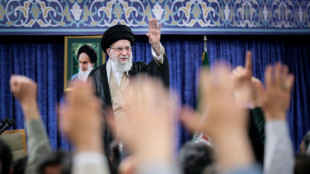 Oil prices fall on hopes for Iran nuclear deal
Oil prices fall on hopes for Iran nuclear deal
-
European walkout after late Infantino delays FIFA Congress
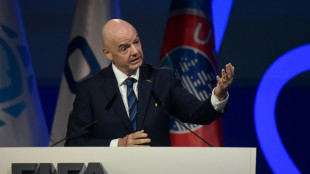
-
 Eurovision: the grand final line-up
Eurovision: the grand final line-up
-
Yamal pearl seals Barcelona La Liga title triumph at Espanyol

-
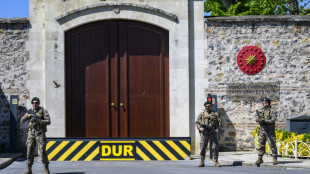 Rubio has no high expectations for Ukraine-Russia talks
Rubio has no high expectations for Ukraine-Russia talks
-
Milkshakes, opera and lust as Eurovision semi votes counted
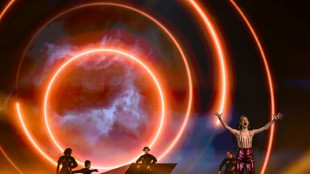
-
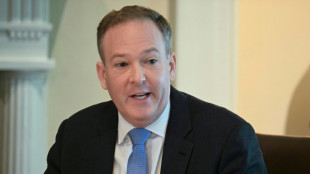 Trump admin leaves door open for tougher PFAS drinking water standards
Trump admin leaves door open for tougher PFAS drinking water standards
-
No.1 Scheffler, No.3 Schauffele blast PGA over "mud balls"

-
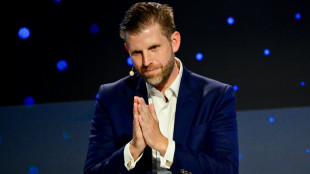 Eric Trump says father's energy policies will help crypto
Eric Trump says father's energy policies will help crypto
-
US rests case in landmark Meta antitrust trial
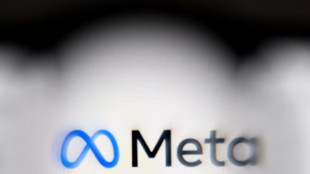
-
 Alba inks Inter Miami extension to 2027
Alba inks Inter Miami extension to 2027
-
Real Madrid's Asencio wants 'presumption of innocence' in underage sex video case

-
 Brazil president leads final farewell to Uruguay's Mujica
Brazil president leads final farewell to Uruguay's Mujica
-
Gaza strikes kill 120 as Hamas says aid entry 'minimum requirement' for talks
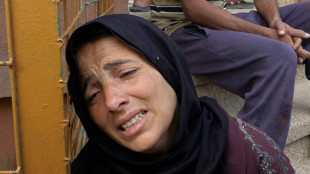
-
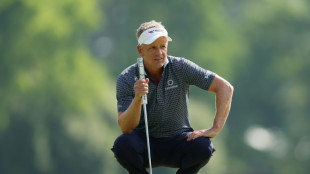 Donald edges Bradley as Ryder Cup captains contend at PGA
Donald edges Bradley as Ryder Cup captains contend at PGA
-
Eurovision semi starts with milkshake and space odyssey
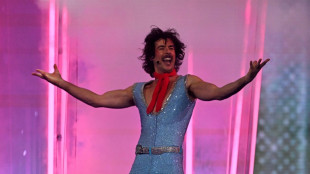
-
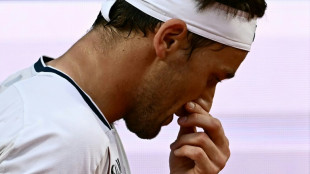 Ruud mesmerised by 'next level' Sinner in Rome destruction
Ruud mesmerised by 'next level' Sinner in Rome destruction
-
Coinbase expects data breach to cost it up to $400 mn
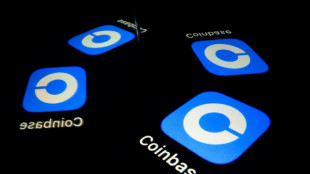
-
 Eagle chip helps Gerard grabs PGA Championship lead with 66
Eagle chip helps Gerard grabs PGA Championship lead with 66
-
England great Anderson set for Lancashire return
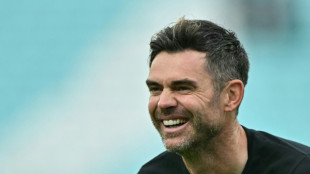
-
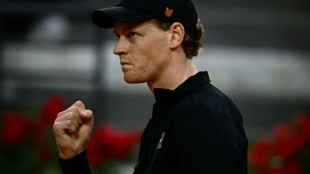 Sinner sends message by demolishing Ruud to reach Italian Open semis
Sinner sends message by demolishing Ruud to reach Italian Open semis
-
Rubio says no high expectations for Ukraine-Russia talks in Turkey
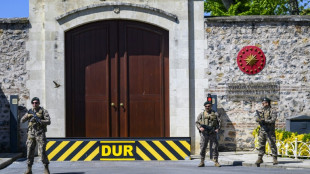
-
 NFL owners to vote on allowing players at 2028 Olympics
NFL owners to vote on allowing players at 2028 Olympics
-
Sinner demolishes Ruud to reach Italian Open semi-finals
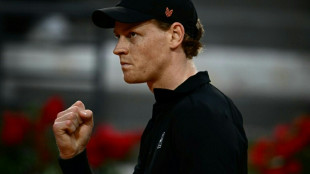
-
 Rashford to miss final two games of Aston Villa's season
Rashford to miss final two games of Aston Villa's season
-
70 South African white rhinos to be relocated to Rwanda

-
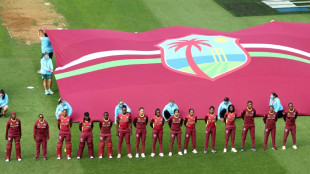 West Indies issue LA 2028 Olympic cricket plea
West Indies issue LA 2028 Olympic cricket plea
-
Gaza strikes kill over 100 as Hamas says aid entry 'minimum requirement' for talks
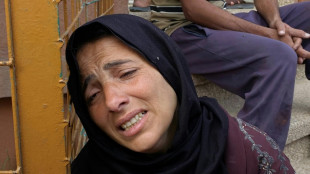
-
 Nantes striker Mohamed fined for sitting out game marking anti-homophobia campaign
Nantes striker Mohamed fined for sitting out game marking anti-homophobia campaign
-
Hamilton admits he underestimated Ferrari challenge

-
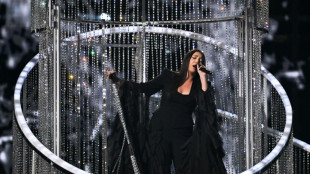 Israel in Eurovision spotlight at second semi-final
Israel in Eurovision spotlight at second semi-final
-
England's Donald shares PGA Championship lead with 67

-
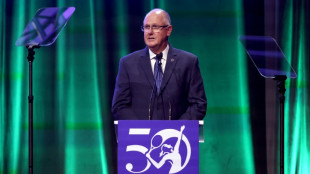 WTA president Simon to step down in December
WTA president Simon to step down in December
-
Antonelli draws on Hamilton's heart-warming message for inspiration
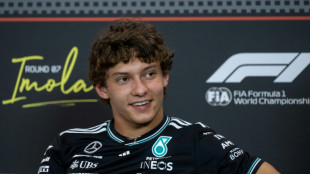
-
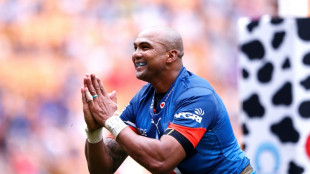 South African rugby mourns death of Cornal Hendricks at 37
South African rugby mourns death of Cornal Hendricks at 37
-
Cool Piastri plays down prospects of more McLaren domination

-
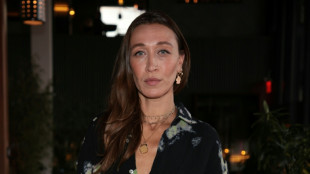 Hadid sister helps launch Palestinian film streaming site
Hadid sister helps launch Palestinian film streaming site
-
Groves wins neutralised Giro sixth stage, former winner Hindley abandons
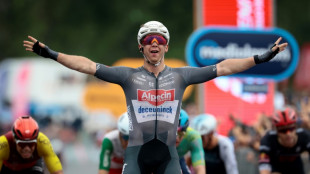
-
 Knight eager to be 'one of the girls' under new England captain Sciver-Brunt
Knight eager to be 'one of the girls' under new England captain Sciver-Brunt
-
Ukraine sends team for Russia talks, downplays expectations

-
 Paolini delights home crowd by reaching 'dream' Italian Open final
Paolini delights home crowd by reaching 'dream' Italian Open final
-
Guyana says soldiers attacked in disputed border region with Venezuela
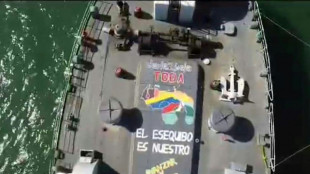
-
 Paolini delights home crowd by reaching Italian Open final
Paolini delights home crowd by reaching Italian Open final
-
Combs's ex Cassie faces intense cross-examination

-
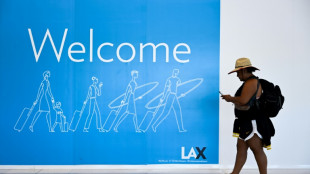 US set to lose $12.5 bn in foreign tourism in 2025: industry
US set to lose $12.5 bn in foreign tourism in 2025: industry
-
Ex-Olympic swim champion Agnel to go on trial over rape allegations
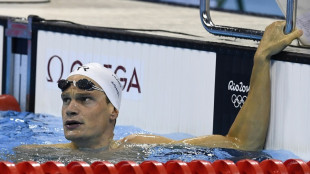
-
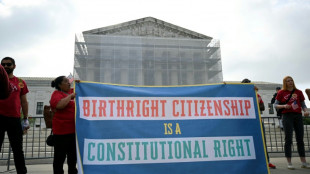 US Supreme Court weighs judicial checks on Trump with birthright case
US Supreme Court weighs judicial checks on Trump with birthright case
-
English trio among early contenders at PGA Championship


Yemen speciality coffee 'wave' sweeps war-hit capital
Tucked amid shell-pocked buildings and roadside tributes to fallen fighters, a less obvious byproduct of wartime is spreading across Yemen's capital: speciality coffee houses serving steaming cups of top-rated pour-over.
The Arabian Peninsula's most impoverished country, locked in an eight-year conflict between Iran-backed Huthi rebels and forces supporting the internationally recognised government, has deep ties to coffee.
Legend has it that Sufi mystics on Yemen's western coast were the first people to brew coffee beans back in the 15th century.
Yet Yemeni entrepreneurs have until recently focused on exporting their best product to wealthy overseas markets.
The most famous among them is Mokhtar Alkhanshali, whose death-defying bid to ship a container full of speciality beans during the war's early stages was chronicled in Dave Eggers' 2018 best-selling book "The Monk of Mokha".
For other Yemenis, however, blocked ports and related restrictions imposed during the war have inspired them to turn inward, giving rise to a cafe scene that today brings flashes of Brooklyn and Paris to Sanaa's war-scarred streets.
"People started to feel like Yemeni coffee was costing a lot and they lost interest in buying it," said Rashed Ahmed Shagea of Durar Coffee, recalling how the export market soured as fighting broke out in 2015.
In response, he opened a cozy shop in central Sanaa where customers can sample beans from all over the country, surrounded by Yemeni art and Yemeni-made wood furniture.
"We had to think of another way to support our farmers," Shagea said.
"Everybody said it's impossible to work in Yemen, that people had no purchasing power... But we insisted."
- 'A magical drink' -
In southern Sanaa's Hadda neighbourhood, Hussein Ahmed made a similar gamble in 2018, opening his Mocha Hunters cafe on a street dotted with million-dollar villas.
It was the culmination of a long personal journey with coffee that began when he and his Japanese wife founded a cafe in Tokyo more than a decade ago.
After the marriage ended, Ahmed also turned his attention to exporting, but wartime hurdles and a travel ban against Yemenis introduced by former US president Donald Trump spurred him to consider opportunities in his home country.
In the cafe's early days, Ahmed could sometimes count on one hand the number of customers who dropped by.
Now the patio is full most afternoons, with Yemenis and foreigners drawn to the simple menu: 750 Yemeni rials (around $1.50) for pour-over drip and qishr, a traditional drink made from coffee husks, and 1,000 Yemeni rials (around $2) for cold brew.
"It's like a wave," Ahmed said, adding this was only natural for a country of coffee "pioneers" who transformed it "from seeds to a magical drink".
The speciality offerings are a far cry from the commercial-grade coffee, often loaded with milk and sugar, that many Yemenis are used to consuming, Ahmed said.
"This movement, it reintroduces what is good taste," he said, with a touch of the haughtiness required of any self-respecting trendsetter.
"We tell customers, 'Your taste or preference doesn't matter for us. We drink what we think is good.'"
- 'Angels singing' in a cup -
Both Durar and Mocha Hunters still depend heavily on their export business, which became easier after a truce was announced in April last year.
Yemeni coffee is world-renowned: James Freeman, founder of Blue Bottle Coffee, once said of Alkhanshali's Port of Mokha product that "this is what angels singing tastes like".
Sales abroad have been boosted further by Yemeni diaspora communities wracked with nostalgia for their homeland but reluctant to return because of the fighting, Ahmed said.
"I think our expats, our people who live abroad, because of the hardness of travel, they become more emotional about their land. So they buy local products," he said.
"It's a global movement, speciality coffee, but in Yemen it's more emotional."
Back home, meanwhile, entrepreneurs are bullish on local consumption, especially if a durable ceasefire were to take hold and improve the economy.
More than two-thirds of the population currently depend on aid to survive.
"This place will grow in the future to become the largest coffee centre in the Middle East," predicted Ghaleb Yahya Alharazi, manager of Haraz, a coffee house that opened last year and can accommodate 1,000 people.
"We have a goal, which is a journey back to the glory, culture and authenticity of Yemeni coffee."
F.Pedersen--AMWN
